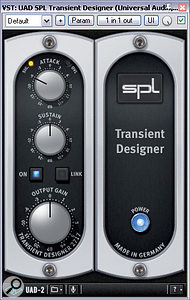

Also, ensure the fabric is connected to the speaker’s cone without any loose ends or holes. Check the wire coils and cones to ensure they’re intact. Crackling, hissing, ticking, and more audio issues are present when your speakers are blown.
Blown speakers cause all sorts of odd noises. If the gain is too high on your speakers, primary playing device, or software, there will either be a humming or hissing sound. High volume can damage the speakers, but increasing the gain will let the volume go higher, which causes irreparable damage. Your speaker’s gain might be too high. #Remove hiss with soundsoap tv#
For example, if your speakers and TV are connected to the same ground supply and each other, it makes a circle that hums or hisses. When everything’s tied to the same power source while also being connected to each other, it creates a loop.
 There might be a ground loop causing the strange sounds. If your wires aren’t in good condition, it’s best to replace them as soon as possible to prevent electrical hazards. Exposed, or damaged wires and other connections are a primary candidate for several audio issues. Loose or damaged wires often cause hissing speakers. There are many explanations for this common complaint, so let’s explore each option in a five-part list. You might even notice a high-pitched hiss when you get close to the speakers. Sometimes, they’re loud enough to ruin a song. Whether they’re showing up when your speakers are on or off, hissing sounds are quite annoying. If you’re noticing a hissing sound rather than a low hum, proceed to the next section for a handful of probable causes. It’s important to find out what’s causing the noises so you can get rid of them as soon as possible. It doesn’t hurt to make sure everything has the same voltage (wires, plugs, cables, etc.)Īs you can see, there are plenty of reasons your speakers make humming or buzzing sounds. If your speakers are humming, there’s a high chance it has something to do with an electrical issue. Use a multimeter to test the outlet’s current to ensure it’s supplying the proper voltage. Your speakers might be plugged into the wrong AC line. Sometimes, low-end cables are too loose and weaken the current, making it hum. It might be tempting to buy the cheapest cables that say they’re compatible with your setup, but that’s not always the best solution. Choosing the wrong cables can be bad for amplifiers and traditional speakers. These noises can hum or tick, even when you’re not playing audio. They might seem minor, but there’s no denying the constant sound you’ll hear. As you’ll see later in the post, your speaker’s USB connections can cause many different issues. Incorrect USB connections might work, but they’ll tamper with the speakers’ sound quality. Leaning close to the component will let you identify if it’s the source or if you should look elsewhere. Contact the manufacturer to ensure you chose the correct transformer. Using the wrong transformer or wiring it incorrectly will undoubtedly cause strange sounds.
There might be a ground loop causing the strange sounds. If your wires aren’t in good condition, it’s best to replace them as soon as possible to prevent electrical hazards. Exposed, or damaged wires and other connections are a primary candidate for several audio issues. Loose or damaged wires often cause hissing speakers. There are many explanations for this common complaint, so let’s explore each option in a five-part list. You might even notice a high-pitched hiss when you get close to the speakers. Sometimes, they’re loud enough to ruin a song. Whether they’re showing up when your speakers are on or off, hissing sounds are quite annoying. If you’re noticing a hissing sound rather than a low hum, proceed to the next section for a handful of probable causes. It’s important to find out what’s causing the noises so you can get rid of them as soon as possible. It doesn’t hurt to make sure everything has the same voltage (wires, plugs, cables, etc.)Īs you can see, there are plenty of reasons your speakers make humming or buzzing sounds. If your speakers are humming, there’s a high chance it has something to do with an electrical issue. Use a multimeter to test the outlet’s current to ensure it’s supplying the proper voltage. Your speakers might be plugged into the wrong AC line. Sometimes, low-end cables are too loose and weaken the current, making it hum. It might be tempting to buy the cheapest cables that say they’re compatible with your setup, but that’s not always the best solution. Choosing the wrong cables can be bad for amplifiers and traditional speakers. These noises can hum or tick, even when you’re not playing audio. They might seem minor, but there’s no denying the constant sound you’ll hear. As you’ll see later in the post, your speaker’s USB connections can cause many different issues. Incorrect USB connections might work, but they’ll tamper with the speakers’ sound quality. Leaning close to the component will let you identify if it’s the source or if you should look elsewhere. Contact the manufacturer to ensure you chose the correct transformer. Using the wrong transformer or wiring it incorrectly will undoubtedly cause strange sounds. 
Your transformer might be making a low humming noise.You’ve probably heard the hissing or humming when a microphone is turned on. This is typically caused by too many electrical devices hindering the signal. These interferences can cause humming, hissing, and everything in between. Electrical interferences could be the problem.Humming and hissing often come from separate sources (though there are a few overlaps)īelow, we’ll discuss five reasons your speakers might be humming. Before finding all of the solutions you’ll need to fix the humming and hissing, we’re going to break down the ten possible causes in the next two sections.







 0 kommentar(er)
0 kommentar(er)
